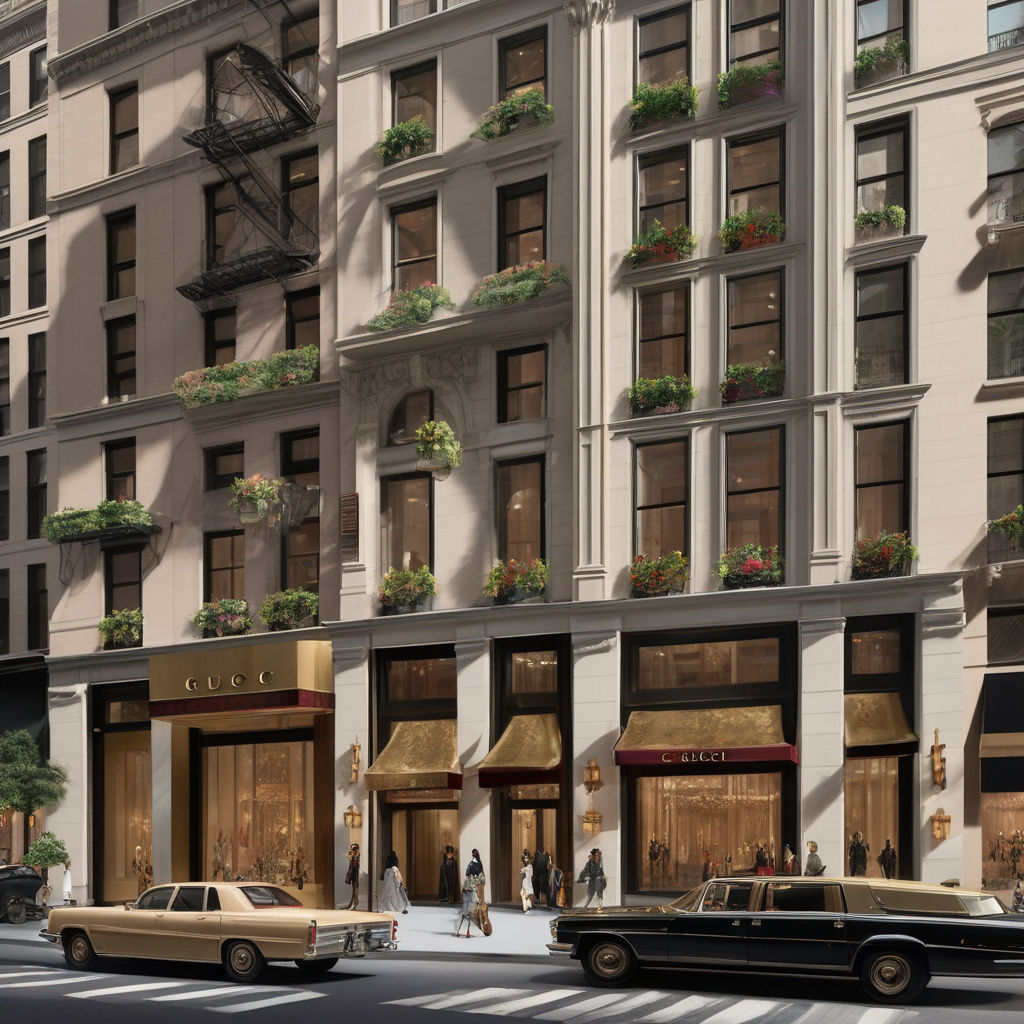Gucci Owner Kering in Talks to Sell Stake in $1 Billion Fifth Avenue Property, Sources Say
In a significant move that highlights the ongoing shifts in the luxury retail landscape, Kering, the Italian luxury conglomerate known for its high-profile brands like Gucci, is reportedly in discussions to sell a stake in a prime Fifth Avenue property in New York City. This potential transaction underscores Kering’s strategic efforts to manage its financial obligations amid mounting debt and declining consumer demand.
The property in question, valued at approximately $1 billion, was acquired by Kering in the previous year in a deal with the buyout group Ardian. This acquisition was part of Kering’s broader strategy to solidify its presence in one of the world’s most coveted retail locations, Fifth Avenue, which is synonymous with luxury shopping and high-end brands. However, recent developments suggest that Kering is re-evaluating its investment portfolio as it navigates a challenging economic environment.
Reports from Reuters indicate that Kering is motivated to reduce its overall costs, which have been impacted by heavy debts and a notable slowdown in consumer spending. The luxury sector, which had seen exponential growth in recent years, is now facing pressures from various fronts, including rising inflation, changing consumer preferences, and geopolitical uncertainties that have led to a more cautious spending behavior among affluent shoppers.
The decision to explore a stake sale in the Fifth Avenue property is indicative of Kering’s strategic pivot. By potentially divesting a portion of its real estate holdings, the conglomerate aims to bolster its liquidity and enhance its financial flexibility. This approach aligns with the broader trend observed among luxury brands, which are increasingly focusing on operational efficiency and sustainable growth in the face of market volatility.
Selling a stake in a high-profile asset like the Fifth Avenue building can serve multiple purposes for Kering. Firstly, it could provide the company with immediate capital, allowing it to address its debt obligations more effectively. Secondly, partnering with a seasoned investment group like Ardian could also facilitate the ongoing management and development of the property, ensuring that it remains a valuable asset in Kering’s portfolio while minimizing the risks associated with full ownership.
Moreover, the luxury retail market has seen a fundamental shift in consumer behavior, with more shoppers gravitating towards online platforms and experiential retail rather than traditional brick-and-mortar stores. As a result, companies in the sector must adapt to these changes, and Kering’s proactive stance in reassessing its real estate investments reflects an understanding of these dynamics.
The potential sale also raises questions about the future of luxury retail in iconic locations like Fifth Avenue. As Kering evaluates its position, other luxury brands may follow suit, leading to a reconfiguration of retail strategies in high-stakes markets. The focus may shift towards enhancing online presence and optimizing physical spaces to create unique experiences that resonate with modern consumers.
In conclusion, Kering’s reported discussions to sell a stake in its Fifth Avenue property serve as a critical reminder of the current landscape within the luxury retail sector. With economic pressures mounting and consumer preferences evolving, the conglomerate’s strategic decision-making reflects a broader trend in the industry. As Kering navigates these challenges, its actions may set the tone for how luxury brands approach their investments and operations in the coming years.
Kering’s strategy will undoubtedly be watched closely by market analysts and competitors alike. The outcomes of these negotiations could have implications far beyond Kering, impacting how luxury retail evolves in an increasingly digital and experience-driven marketplace.
luxuryretail, Kering, FifthAvenue, realestate, consumertrends
